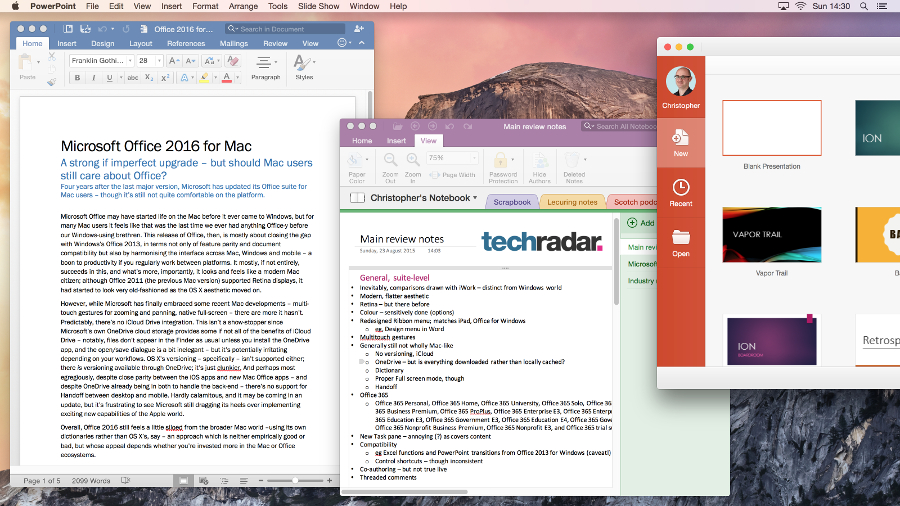Microsoft still rules when it comes to office productivity applications
And the word processor is still king

Microsoft's Office 2010 is the most popular office productivity suite among you, the techradar readers, our latest survey has found.
More than 400 of you provided us with a detailed view of what you used on a regular basis to work. The research revealed some surprising trends including the relative resilience of the client-based application (the traditional software installed) and the longevity of some of the programs used.
Unsurprisingly, Microsoft Office remains the most widely used office productivity suite with nearly three-quarter of you opting for it. What came as a shock was the fact that Office 2010 was by far the most popular version followed by Office 2013.
Office 365, the subscription-based version of Microsoft's suite, hovers at around 10% just ahead of Office 2016. Open source darling, OpenOffice/LibreOffice, garnered an impressive 13%
Google Apps is used as the primary office package by just a tiny fraction of our readers which may hide the fact that many could be using it every now and then.
Microsoft lagging in mobile
Things are different on the mobile front; Google apps is the most popular office apps suite on tablets and smartphones with Office Mobile being a close second.
Perhaps the most baffling piece of data is that a lot of you still don't see the need to get office applications on your smartphones despite them being free. The desktop and the laptop remain the two platforms where office packages are used the most with the former dominating our survey.
Are you a pro? Subscribe to our newsletter
Sign up to the TechRadar Pro newsletter to get all the top news, opinion, features and guidance your business needs to succeed!
The most used app remains the word processor, with more than half of you who answered saying that it is your most used application, well ahead of spreadsheets and email (or Personal Information Manager).

Désiré has been musing and writing about technology during a career spanning four decades. He dabbled in website builders and web hosting when DHTML and frames were in vogue and started narrating about the impact of technology on society just before the start of the Y2K hysteria at the turn of the last millennium.
Most Popular

